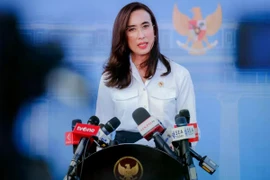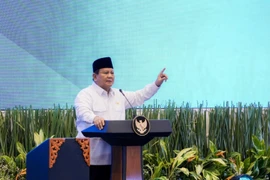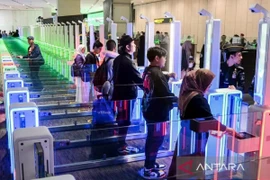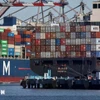Jakarta (VNA) – Bank Indonesia (BI) announced on April 7 that it will intervene aggressively in the domestic foreign exchange market to protect the local currency, following US President Donald Trump’s announcement of a 32% reciprocal tariff on goods imported from the Southeast Asian nation.
The Indonesian central bank said in a statement that the intervention will come in the spot and non-deliverable forward markets, as well as in secondary bond markets, adding that it had already intervened offshore in Asia, European and New York markets.
The bank’s statement said it will also intervene aggressively in the domestic foreign exchange market, after opening on April 8, while purchasing government securities (SBN) in the secondary market.
On the same day, Indonesian President Prabowo Subianto said the country will negotiate with Washington to ask for a better deal related to the tariff issue.
Indonesian markets, closed since March 28 for public holidays, are set to reopen on April 8, with the IDR at its lowest level against the US dollar since the 1998 Asian financial crisis.
The US is now one of Indonesia's largest trading partners./.
See more

Malaysia calls for ASEAN agreement on US tariff negotiations
Malaysian Prime Minister Anwar Ibrahim urged members of the Association of Southeast Asian Nations (ASEAN) not to underestimate the issue, particularly amid the current global economic and political uncertainties.
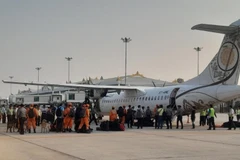
Myanmar’s railway, airport resume operations after earthquake
Passenger services along the Yangon-Mandalay line resumed on the morning of April 5 while Mandalay International Airport has been reopened since April 4.
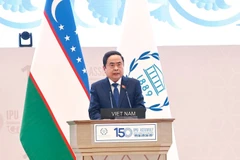
NA Chairman calls for joint efforts to build sustainable world at IPU-150
Vietnamese National Assembly Chairman Tran Thanh Man emphasised that no country or society can achieve sustainable development without placing people at the centre of all policies.

Thailand sends trade negotiation delegation to US
Thailand will request that the US grant promotional privileges for Thai investors and fewer obstacles to Thai exports.

Philippines raises alarm on rising tobacco, vape usage
The DOH said tobacco use is a major risk factor for cardiovascular and respiratory diseases. Globally, the World Health Organisation (WHO) estimates over 8 million annual deaths attributable to tobacco.
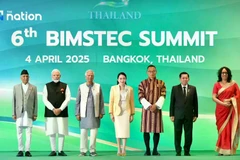
Thailand proposes creation of BIMSTEC Free Trade Agreement
Thailand also proposed establishing a BIMSTEC business advisory council to enhance the role of small and medium-sized enterprises (SMEs) in the region’s future growth.
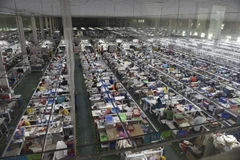
Cambodia seeks tariff negotiations with US
In a letter sent to US President Donald Trump, Cambodian Prime Minister Hun Manet requested negotiations after the US imposed a 49% tariff on products from Cambodia, urging Trump to postpone the tariff implementation.
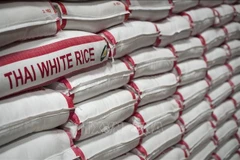
Thai rice prices hit over three-year low
Thailand’s 5% broken rice fell to 395-400 USD per tonne, its lowest since January 2022.

Malaysia to convene special ASEAN meeting on US tariffs
The Association of Southeast Asian Nations (ASEAN) leaders will also meet to discuss the member states’ solutions to address and mitigate potential disruptions to regional trade, supply chain networks, and cross-border investments, the MITI said.
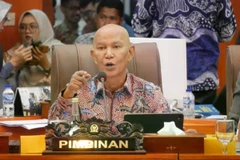
WTO urged to take move against US import tariffs
Abdullah asserted that economic policies should support universal economic interests rather than serve as tools for superpowers to gain unilateral advantages - a practice he believes could lead to global economic depression.

Death toll in Myanmar’s March 28 earthquake exceeds 3,350
The 7.7-magnitude earthquake, which struck Myanmar on March 28, also caused significant damage to the country’s critical infrastructure, including underground oil pipelines and the electricity system.
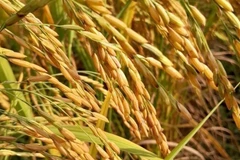
Thailand sees long-term opportunities for organic rice exports
The official indicated that the exports of locally-harvested organic rice generally grew by 32% in 2024, but particularly expanding as high as 72.1% for its fragrant strain, or Hom Mali, followed by 23.1%, 3.3% and 1.5% for its brown, white and broken grains respectively.

Bangkok declares end of disaster situation
All areas in the city are no longer disaster zones, except for the area around the construction site of the new State Audit Office (SAO) building on Kamphaeng Phet 2 Road, Chatuchak district, the statement said.
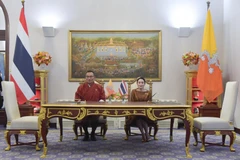
Thailand, Bhutan formally endorse trade agreement
In 2024, trade between Thailand and Bhutan reached over 460 million THB (13.3 million USD), with Thailand exporting goods worth 457 million THB to Bhutan and importing goods worth 3.47 million THB from this market..
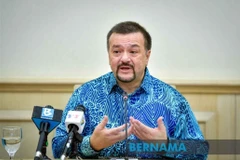
ASEAN to enhance economic recovery, regional financial intergration
Second Finance Minister Amir Hamzah Azizan told the press that Malaysia has focused on three priority economic deliverables (PED) under the financial track, namely sustainable financing, digital economy, and inclusive development.
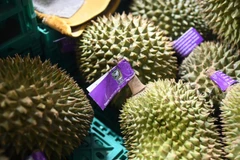
Thailand proposes China facilitate durian export
Chinese authorities will also increase the number of inspection laboratories from three to five, adding more officials to streamline the process at this checkpoint, Napintorn said.
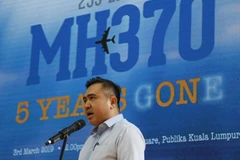
Malaysia suspends search for MH370
The search has been suspended due to poor weather conditions and is expected to resume at the end of this year.
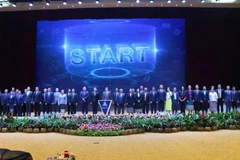
Lao Digital Week 2025 hoped to enhance digital growth
Emphasising the growing importance of technologies like artificial intelligence (AI), he stressed the need for Laos to embrace this digital revolution to enhance its development.
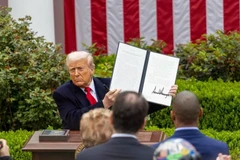
Thailand to negotiate with US on tariffs
Thailand is on the list of 15 countries that could be affected by Trump’s tariff policy. The average US tariff on Thai imports is 2% while Thailand levies an average tariff of 8% on US products
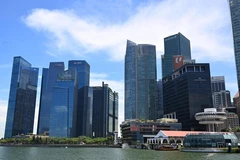
New US tariffs may hurt Singapore companies: survey
A flash survey by the American Chamber of Commerce (AmCham) in Singapore showed that more than two-thirds of the 36 respondents polled flagged potential reciprocal tariffs on countries that tax US imports as the biggest concern for their business – compared to existing trade measures.
